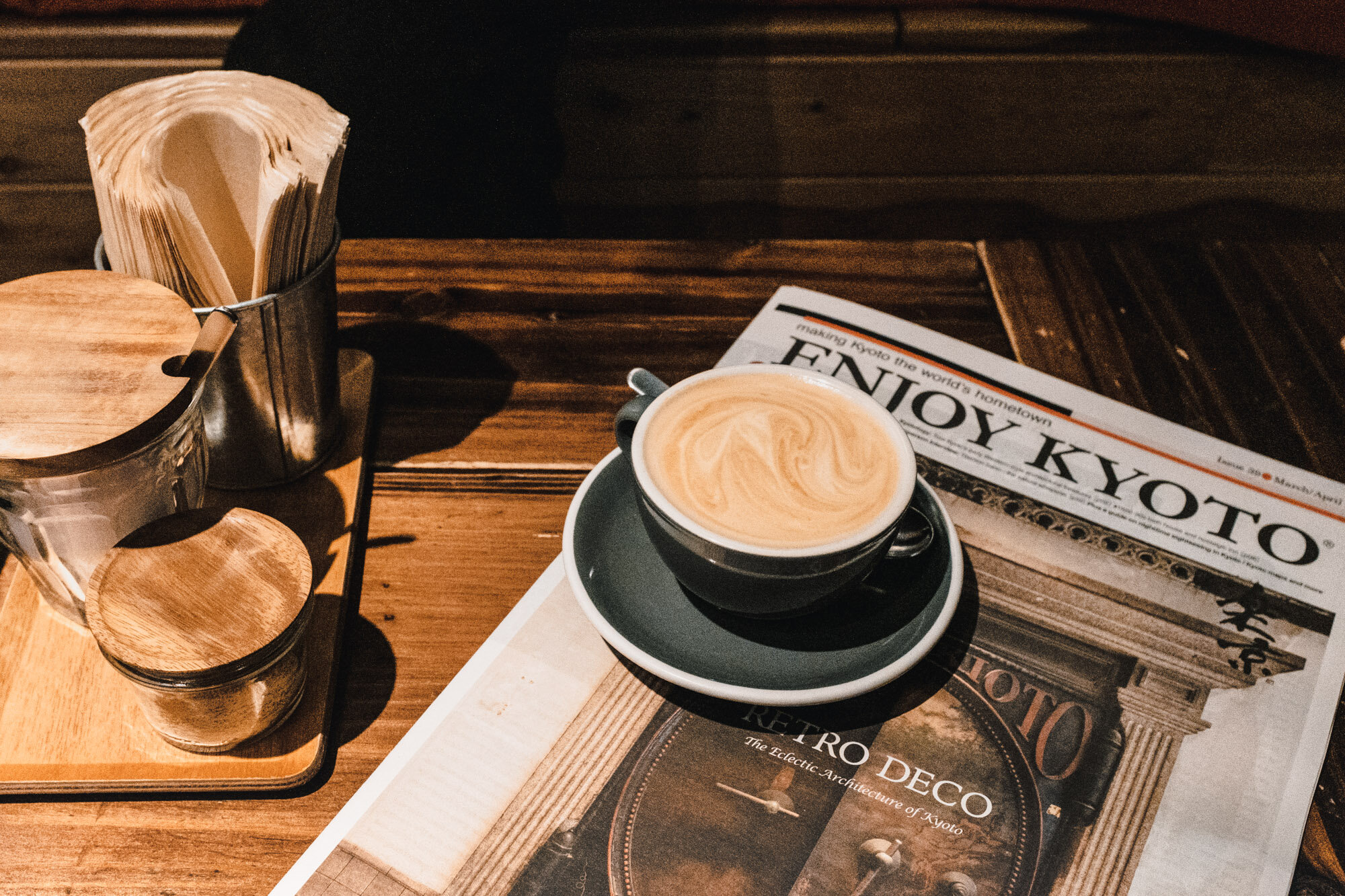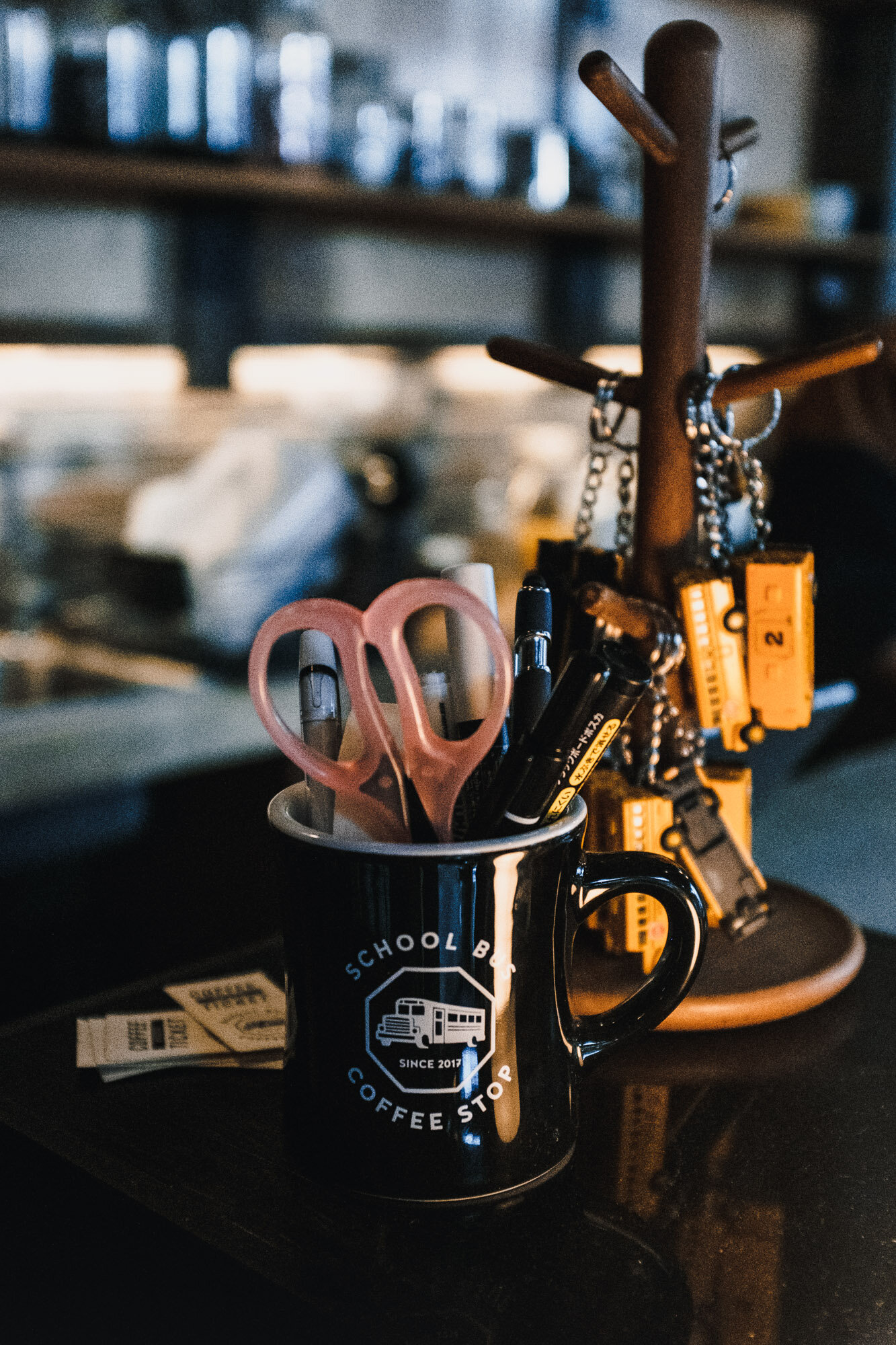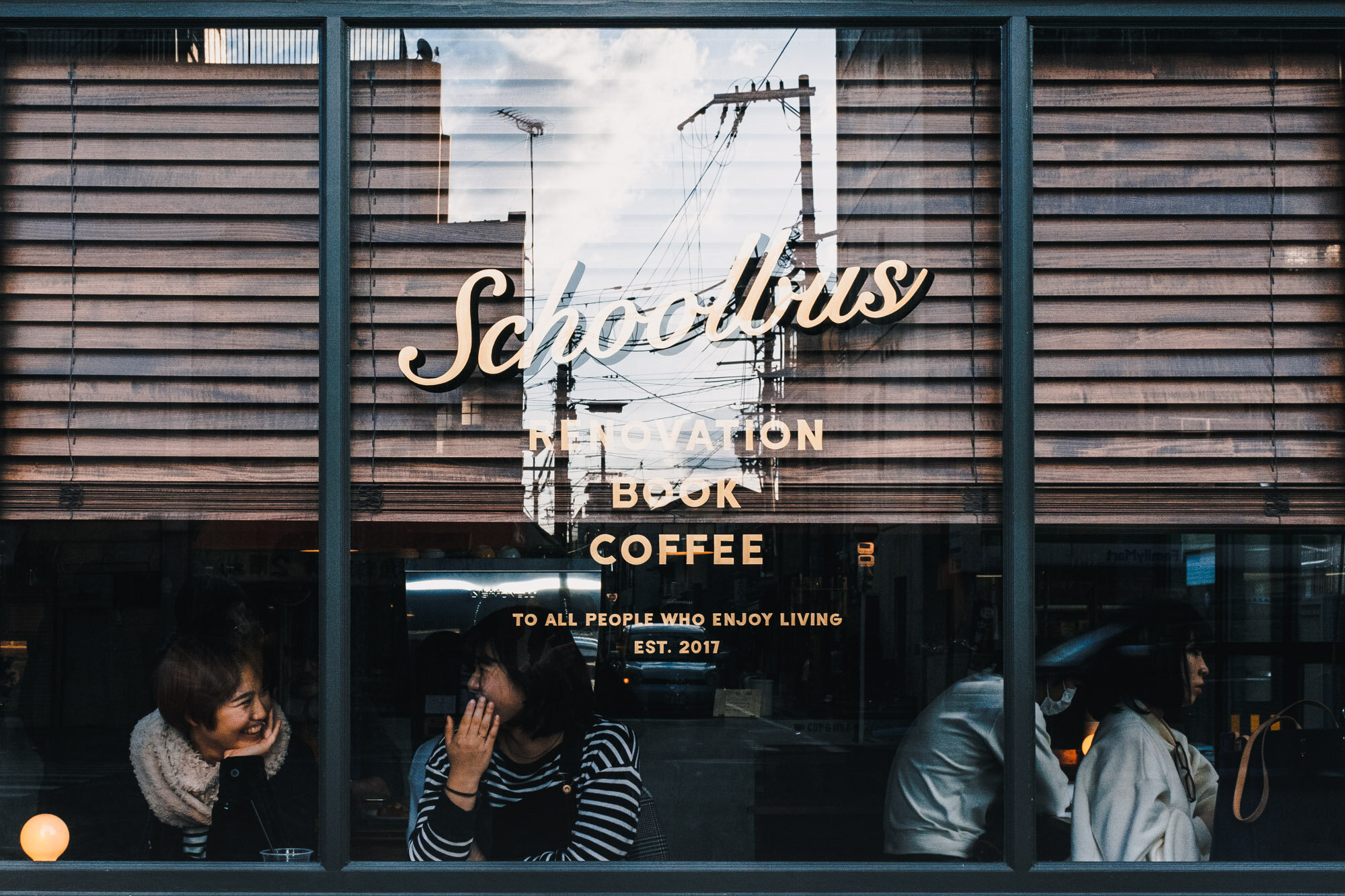Coffee Culture: Kyoto, Japan
Don’t be fooled by centuries of iconic traditions, Kyoto is as much a bustling coffee hub as other metropolises in Japan.
First, there was tea; now, coffee culture permeates every aspect of Japanese life. And while Kyoto is the birthplace of Japanese tea and the guardian of the nation’s most well-known traditions, the city didn’t stay behind when coffee became ubiquitous around the country. In fact, the coffee places in Kyoto rival those of Osaka and Tokyo, and some of its better-known cafés are exclusive to the city. Serving top-quality drinks, the cafés in Kyoto are so many that, like its temples, there won’t be enough time to check them all during a visit to the city.
School Bus Coffee Stop
This is the Kyoto branch of the famous Schoo Bus Coffee Stop in Osaka — also featured in my Osaka Coffee guide. But unlike the cool and bright interior of Osaka, the café in Kyoto is cosier with concrete floors, dark wooden countertops and smaller windows. It’s a place where you could get your head down and do some work while drinking countless cups of their tasty drip coffee.
Surprisingly, the company that owns the School Bus Coffee Stop also has a remodelling company which might explain how both places have such a great design and aesthetic concept. According to them, the café wants people to enjoy a coffee stop while experiencing daily life in the USA. Japan’s fascination with Americana is boundless, and School Bus makes its best effort to modernize the aesthetic; instead of the gaudy signs and cowboys memorabilia from the 50s and 60s, they take the bright yellow school bus as a motif and run with it. From the yellow colour of the cups, glass-painted lettering signs to the small bus keychains the café uses to mark orders.
Keep an eye on their playful latte art, since latte art world champions train their baristas.
1-23-4 Kitahorie, Nishi Ward, Osaka
% Arabica Higashiyama
The ex-libris of the Kyoto Coffee scene that has captured the world’s attention by serving not only excellent coffee but having their shops designed by renowned architects, such as Masaki Kato or B.L.U.E. has three outposts in town.
Founded by Kenneth Shoji with the desire to provide the “an amazing cup of coffee every day with an equally amazing experience”, according to their website. What strikes me as curious is that Shoji founded the brand in Kyoto, instead of Tokyo, and in fact, while % Arabica has stores all over the world (23 of which are in China) there isn’t a single one in the Japanese capital! The coffee beans are prime quality and meticulously roasted to keep inline with Arabica’s famed roast profiles. Their lattes (they have soy and almond milk) have a vibrant and sensual taste that can make any person not a fan of arabica coffee beans (me — hi!), second guess themselves.
The Higashiyama branch, like all % Arabica cafés, has a strikingly white interior, with a gleaming glass façade that allows passers-by to observe the coffee shop goings-on. In this particular case, it might be a deterrent from entering, as the café, much like the area is always buzzing with people.
Never the less, while in Kyoto a trip % Arabica is mandatory, even if that means a coffee to go.
87-5 Hoshino-cho, Higashiyama-ku
Walden Woods
Does a coffee shop needs tables? According to Walden Woods, tucked away in the side streets of Sakaecho neighbourhood, they are wholly unnecessary. Named after Henry David Thoreau’s wilderness escape, Walden Woods is a minimalist coffee shop where one could, say, contemplate the simple things in life with a warming cup of coffee.
While wilderness escapes and minimalism doesn’t necessarily mix, this incongruence is a curious thing in Walden Woods. After ordering downstairs, in an ample space with a floor-to-ceiling glass façade, whitewashed walls and wood pulp counters and stairs, you head upstairs to a square room with amphitheatre seats along the edges of the room. In the centre lies a tree branch bare of leaves to keep the colour scheme monochromatic.
But what about the coffee? Thankfully Walden Woods doesn’t become a short-lived Instagram café, as their coffee roaster credentials are sound. For all its minimalist aesthetic, they share the commitment of the traditional Kyoto cafés to a beautiful cup of coffee and serve only carefully selected single-origin beans.
One to keep in mind when visiting Kyoto.
508-1 Sakaecho, Shimogyo Ward
Vermillion Espresso Bar
I’ve been coming to Vermillion Espresso Bar since I’ve been climbing Mt. Inari — that would be four climbs in 6 years. The café is 2 minutes walk from the JR Inari station, making it a convenient stop pre and post-visit. But unlike most conveniently located coffee shops, Vermillion excels as a purveyor of caffeinated drinks.
They use beans from Weekenders Coffee — another excellent coffee place in the city — and have on offer everything from black coffee, lattes and cappuccinos made on their sophisticated espresso machine. They also make a great flat white (still not a staple in Japan) and sitting down with a drink and reading one of the many books on offer is a great way to prepare oneself to face the mountain (and the crowds).
85 Fukakusa Inarionmaecho, Fushimi Ward






















